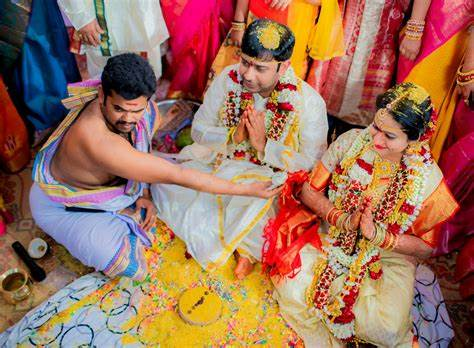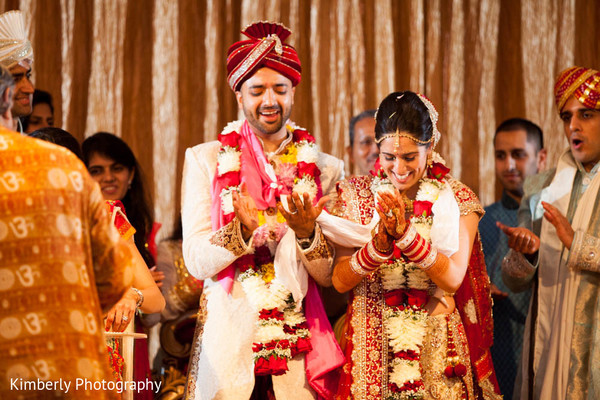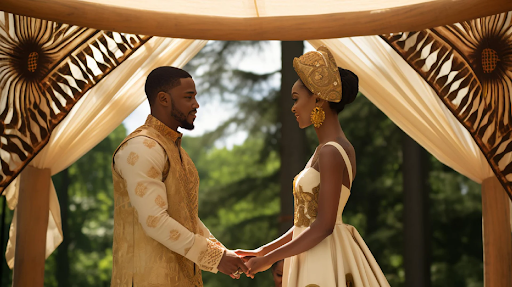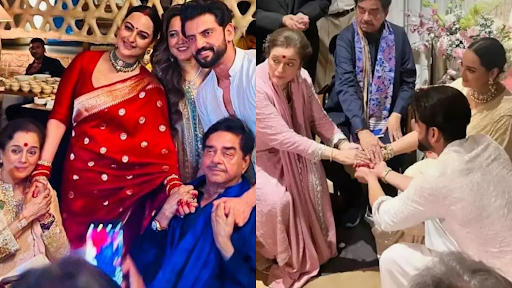Introduction
In the journey of marriage, the merging of two lives involves navigating various aspects, among which religious beliefs often hold significant weight. Whether it’s the rituals we grew up with, the values ingrained in our families, or the spiritual practices that ground us, religion can profoundly shape our identities and worldviews. When two individuals from different religious backgrounds come together, the prospect of harmonizing these beliefs can either be a source of unity or a potential challenge. This blog explores the pivotal role of religious compromise in fostering a successful and harmonious marriage.

Understanding Religious Identity in Relationships
When discussing religious compromise in marriage, it’s important to understand individual religious identities. Each person’s beliefs are more than just rules or practices—they are often deeply connected to their sense of self, community, and upbringing. Religious practices, like celebrating festivals, attending services, or following dietary restrictions, can significantly shape daily life. When two people with different religious backgrounds decide to build a life together, they bring both their love and their religious heritage into the relationship.
In such marriages, navigating differences can seem challenging at first. One partner might come from a household where prayers were a daily ritual, while the other might have celebrated different holidays or followed different customs. These differences, if approached with openness and respect, can enrich the relationship instead of dividing it. Understanding and appreciating each other’s religious backgrounds creates a foundation for mutual respect and empathy, which are essential for successful compromise.
The Art of Religious Compromise
A compromise in a marriage with different religious beliefs is not about one person giving up their faith. It’s about balancing respect, negotiation, and openness to find common ground. This requires clear communication and understanding of the importance of each partner’s religious practices.
For example, couples might find ways to celebrate holidays from both traditions, blending rituals or alternating celebrations each year. They could focus on common values like compassion, kindness, or charity from their faiths in their daily lives. Sometimes, couples may choose to participate in each other’s religious ceremonies to show support and solidarity, even if they don’t share the same beliefs.
Religious compromise also involves setting boundaries and respecting each other’s choices. It’s crucial for couples to discuss and agree upon how they will raise children, handle religious ceremonies, or manage interactions with extended family members who may have different expectations. These discussions, while challenging, can strengthen the foundation of trust and understanding within the marriage.

Challenges and Growth Opportunities
Navigating religious differences in marriage isn’t always smooth sailing. Challenges can arise when cultural expectations clash, family members express disapproval, or when personal beliefs evolve over time. It’s important for couples to recognize that growth and adaptation are integral parts of any successful marriage. Flexibility, patience, and a willingness to learn from each other’s perspectives can transform challenges into opportunities for personal and relational growth.
Moreover, couples may find support through counselling, religious leaders, or support groups where they can seek guidance on how to manage religious differences constructively. These resources can provide tools for effective communication, conflict resolution, and maintaining emotional intimacy despite religious disparities.
Celebrating Diversity and Unity
Ultimately, the journey of religious compromise in marriage is a testament to the power of love, respect, and mutual understanding. It’s about celebrating the diversity that each partner brings while fostering unity through shared values and goals. By embracing each other’s religious traditions with an open heart and mind, couples can create a harmonious environment where both partners feel valued and respected.
In conclusion, successful marriages built upon differing religious beliefs are not defined by the absence of differences but by the respectful negotiation and appreciation of those differences. Through communication, compromise, and a commitment to mutual growth, couples can forge a path that honours both their individual faiths and their shared journey together. In doing so, they create a marriage that is not only enduring but also deeply enriching.

